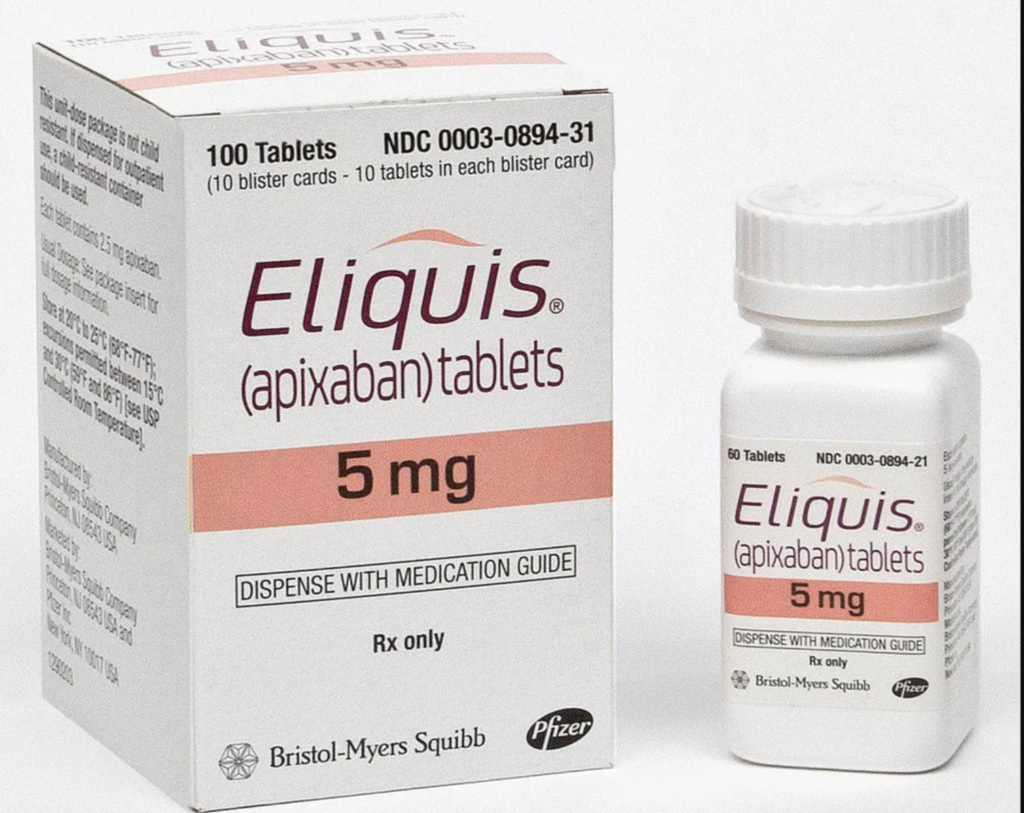Eliquis Side Effects: Risks, Management, and More
In the realm of anticoagulant medications, Eliquis has emerged as a significant player, offering life-saving benefits for many. However, like any medication, it comes with potential side effects that necessitate understanding and management. In this comprehensive guide, we’ll explore Eliquis side effects, from the common to the rare, and equip you with the knowledge to make informed decisions about its use.
What Is Eliquis?
Eliquis, known by its generic name apixaban, is a widely prescribed anticoagulant medication. Its primary purpose is to prevent the formation of blood clots, making it an essential medication for individuals at risk of strokes, deep vein thrombosis (DVT), and pulmonary embolism (PE).
Common Side Effects of Eliquis
Understanding the potential side effects of Eliquis is crucial for anyone using this medication. While many users experience no side effects, some may encounter mild to moderate reactions. Here are the most common Eliquis side effects:
Bruising:
Some users may notice an increase in bruising. This is typically harmless but should be monitored.
Bleeding:
Eliquis can reduce the blood’s ability to clot, which may lead to minor bleeding from cuts or nosebleeds. It’s vital to inform your healthcare provider if bleeding becomes excessive or prolonged.
Gastrointestinal Discomfort:
Stomach pain, nausea, or indigestion may occur in some individuals. Taking Eliquis with food can help alleviate this discomfort.
Serious Side Effects and Risks
While Eliquis is generally safe, there are potential serious side effects and risks associated with its use. It’s crucial to be aware of these rare but severe reactions and seek immediate medical attention if you experience any of the following:
Major Bleeding Events:
Eliquis can increase the risk of major bleeding, which may manifest as persistent or severe nosebleeds, heavy menstrual bleeding, blood in urine or stools, or unexplained bruising.
Allergic Reactions:
Although rare, some individuals may experience allergic reactions to Eliquis, leading to symptoms such as rash, itching, swelling, severe dizziness, or difficulty breathing.

Who Is at Risk?
Understanding who may be more susceptible to specific side effects of Eliquis is essential. While it’s generally safe for many individuals, certain factors can increase the likelihood of experiencing side effects:
Age:
Older adults, particularly those over 75, may have a higher risk of bleeding events when taking Eliquis.
Medical History:
Individuals with a history of gastrointestinal bleeding, kidney problems, or certain liver conditions may have an increased risk of side effects.
Other Medications:
Some medications, when taken concurrently with Eliquis, can amplify the risk of bleeding. Always inform your healthcare provider about all medications you are taking.
Managing Side Effects
While Eliquis side effects are possible, many individuals can manage them effectively. Here are some strategies to consider:
Bruising:
To minimize bruising, apply gentle pressure to bleeding areas, and use a soft toothbrush. Inform your healthcare provider if bruising becomes concerning.
Bleeding:
If you experience minor bleeding, apply direct pressure to the area. For persistent or severe bleeding, seek immediate medical help.
Gastrointestinal Discomfort:
Taking Eliquis with food can help alleviate stomach discomfort. If issues persist, consult your healthcare provider for possible adjustments to your dosage or medication.
Reporting Side Effects
Your role in medication safety is crucial. If you experience side effects from Eliquis, it’s essential to report them promptly to your healthcare provider. Additionally, consider reporting adverse reactions to the FDA’s MedWatch program. Reporting helps monitor medication safety and improve patient care.
Alternatives and Consultation
While Eliquis is effective, alternatives exist for anticoagulant therapy. It’s essential to consult your healthcare provider to determine the best treatment plan for your specific needs. They can evaluate your medical history, assess potential risks, and recommend the most suitable option.
FAQs about Eliquis
Q: Are there any dietary restrictions while taking Eliquis?
A: There are no specific dietary restrictions while taking Eliquis. However, maintaining a balanced diet is essential for overall health. Consult your healthcare provider if you have concerns about specific foods or supplements.
Q: Can I continue with my regular exercise routine while on Eliquis?
A: Physical activity is generally encouraged while on Eliquis. It’s essential to stay active and maintain a healthy lifestyle. However, consult your healthcare provider for exercise recommendations, especially if you have a history of bleeding or other medical conditions.
Q: Can I drink alcohol while taking Eliquis?
A: Moderate alcohol consumption is usually safe while taking Eliquis. However, excessive alcohol intake can increase the risk of bleeding. It’s best to discuss your alcohol consumption with your healthcare provider.
Q: What should I do if I miss a dose of Eliquis?
A: If you miss a dose, take it as soon as you remember. If it’s close to the time for your next scheduled dose, skip the missed one and continue with your regular dosing schedule. Do not double the dose to catch up.
Q: How long should I take Eliquis?
A: The duration of Eliquis treatment varies depending on your medical condition. Your healthcare provider will determine the appropriate duration for your specific case. Follow their guidance closely.
Q: Can Eliquis be taken with other medications?
A: Eliquis can interact with certain medications. Always inform your healthcare provider about all medications, including over-the-counter drugs, supplements, and herbal remedies, that you are taking to prevent potential interactions.
Conclusion:
In conclusion, Eliquis is a valuable medication for preventing blood clots and associated complications. Understanding its potential side effects and risks empowers you to use it safely. While side effects are possible, many individuals benefit from Eliquis without experiencing significant issues




